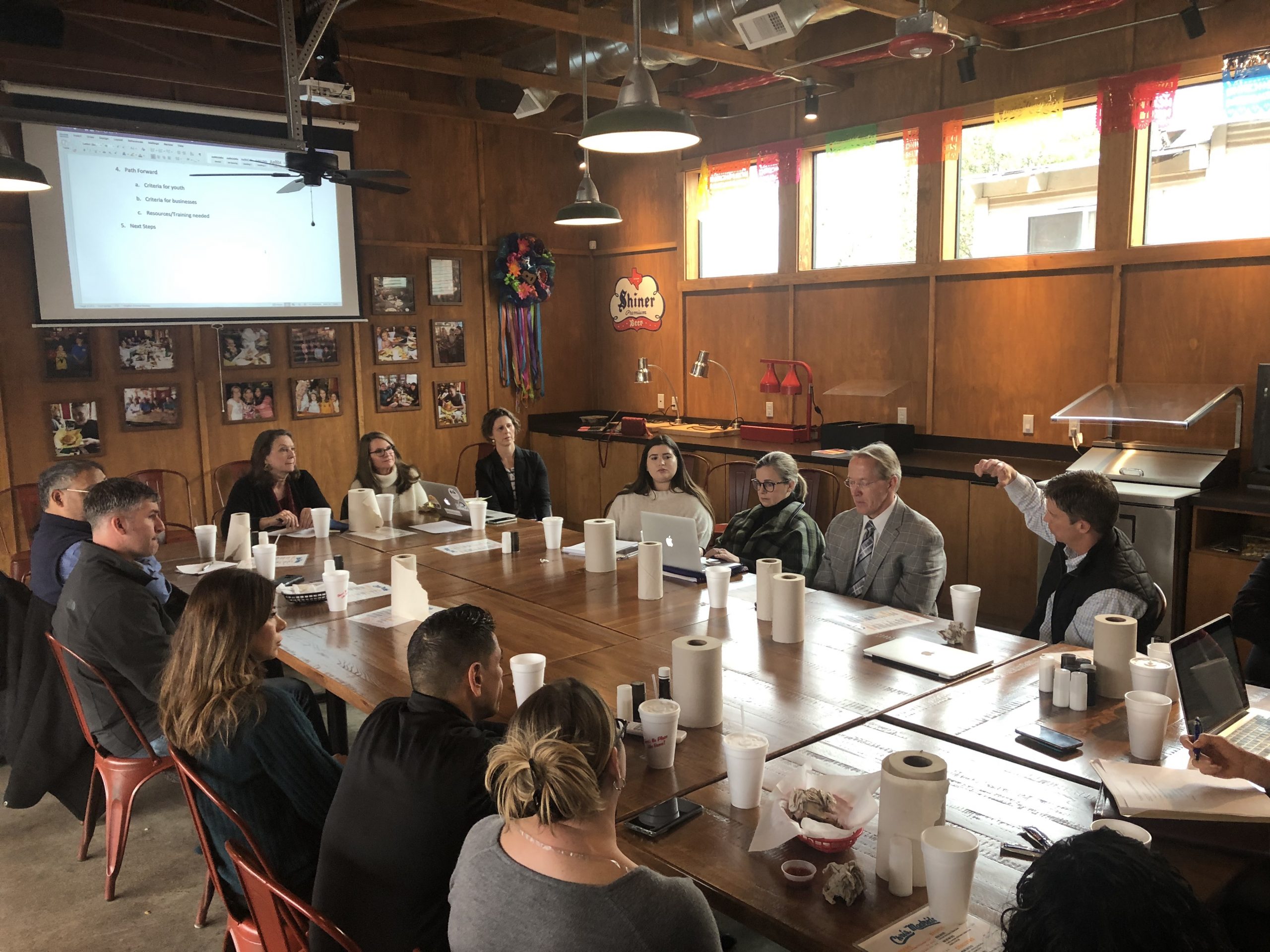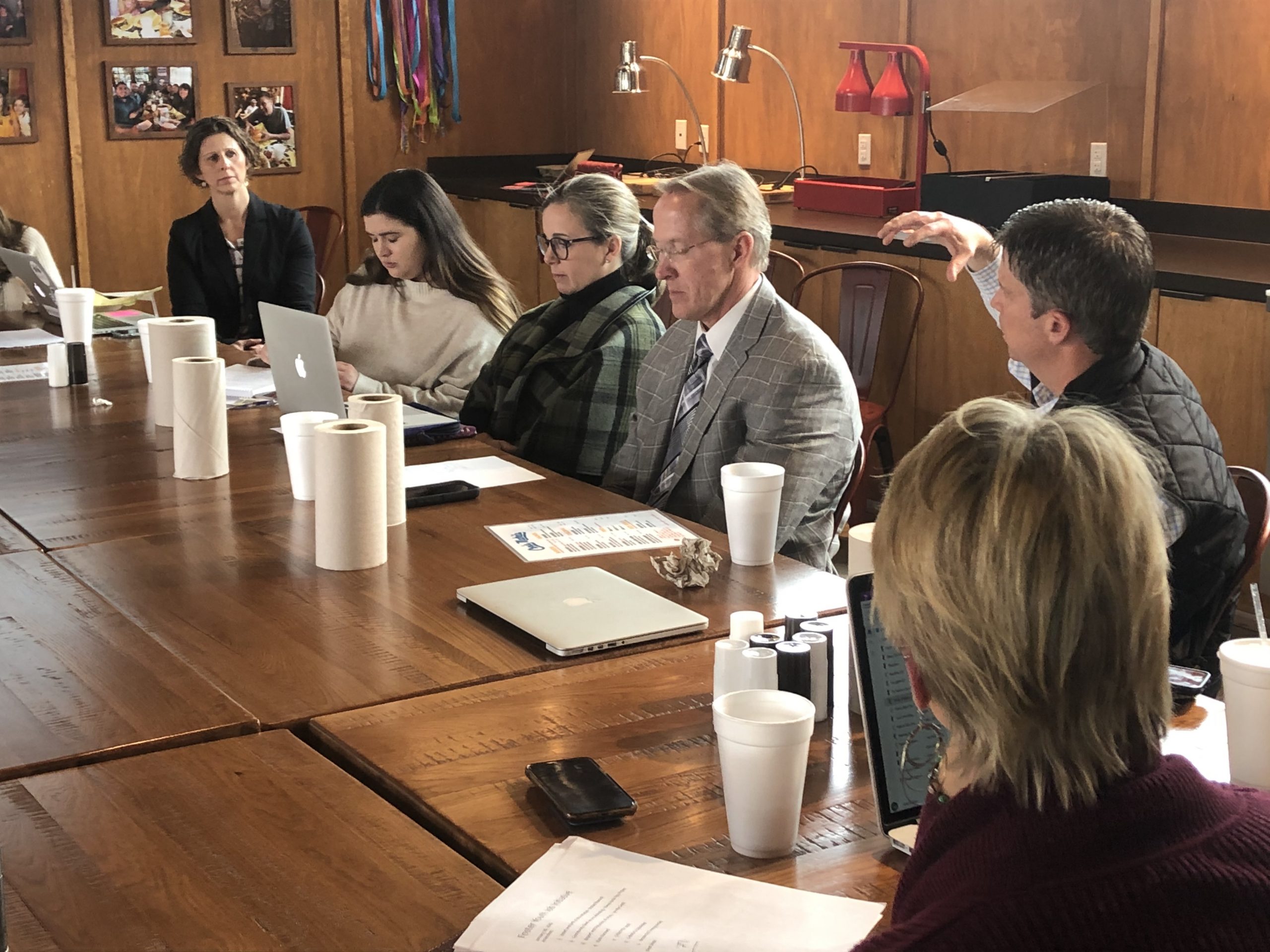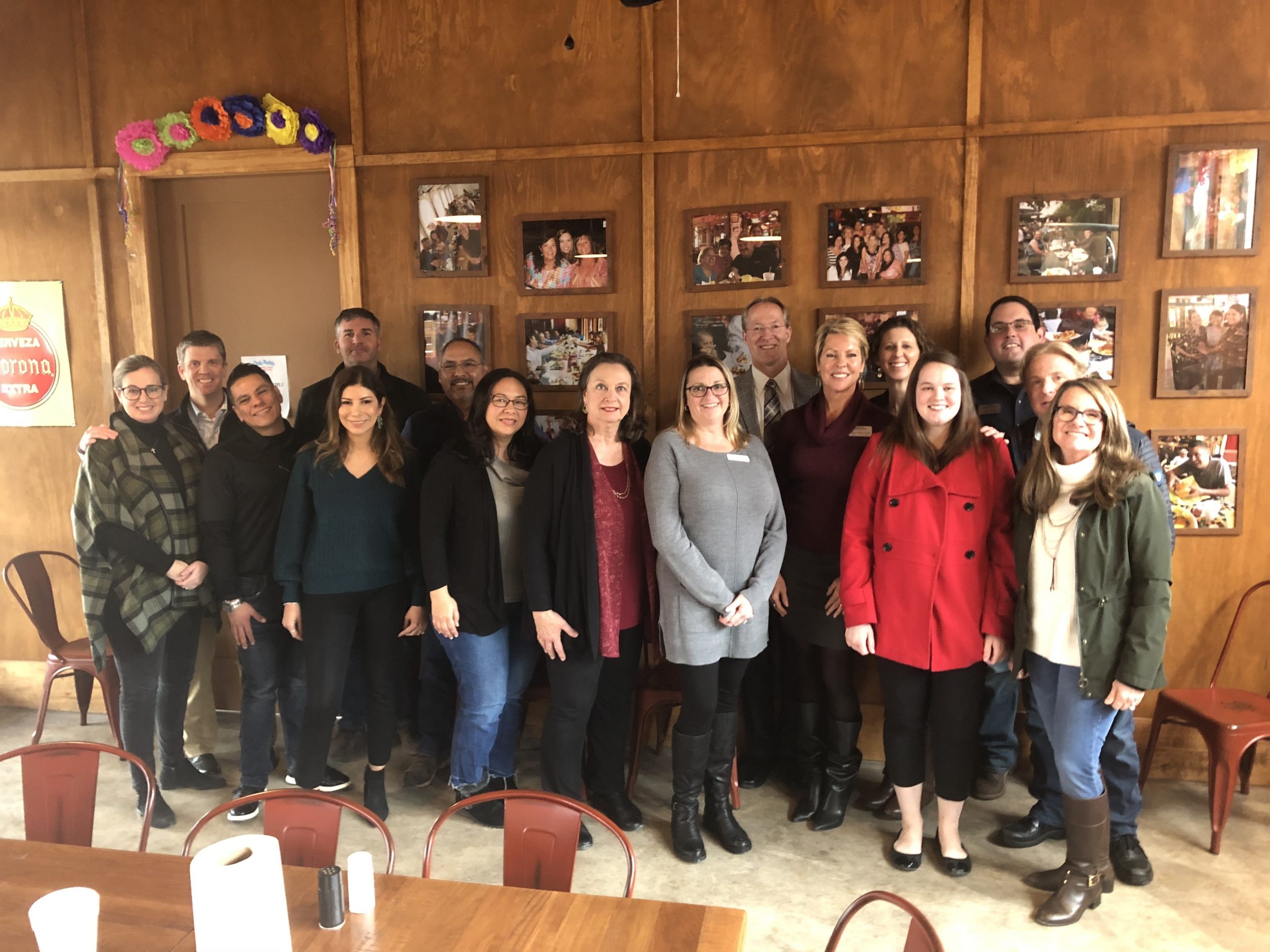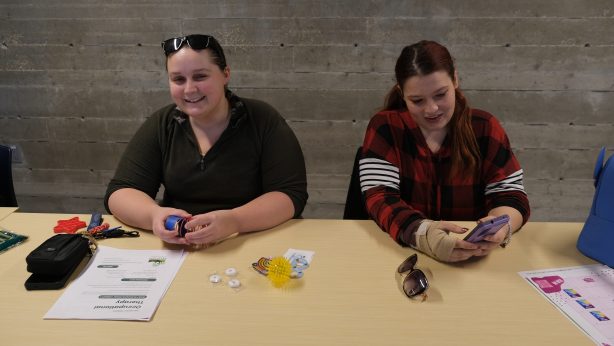Making a Business Case for Youth Who Age Out of Foster Care

As a mentor with THRU Project for youth who age out of foster care, I’ve met a lot of young adults who grew up in the system. On more than one occasion in talking with these youth, I’ve heard this statement: “I just can’t believe there’s people out there who care about kids like me … and they don’t get paid for it.”
I can almost see a glimmer in their eyes of the foster child they once were when they ask that question and I just want to hug them and say, “Yes, Virginia, there is a Santa Claus!” Those kinds of people do exist and they may not know you exactly, but they do want to help you succeed in life.
Last week, I ate my lunch surrounded by these types of people with a heart for foster kids. This group is working together to take things a step … a BIG step further and have invested themselves in not only asking the question but answering the question: “What Happens After Foster Care?”
Housing, Education, and Employment are the three pieces of the puzzle that make up both the question and the answer of What Happens After Foster Care?
Creating stability in life after foster careCreating stability in life after foster care
That’s the belief of THRU Project CEO, Elaine Andries Hartle. If one of those pieces of the puzzle is missing, at least for youth who age out of care, she says, “that creates instability which sets them back. Not having a strong safety net in place after exiting care makes it harder for them to get back on track.” THRU Project provides housing for its youth with its Next Step Housing Program. “The Next Step Program has been successful. We have learned so much from our pioneer program. We have graduated nine youth to independence, taught them how to save for their financial future, and our first class of Next Step graduates have collectively saved over $20,000! We are beyond proud of them. Tackling employment and education,” says Andries Hartle, “seemed like a logical ‘Next Step’ for us.”
CLOUDY WITH A CHANCE OF HOPE
Though the day was cloudy, the forecast last week at this lunch called for hope in a conference room at a historic, popular Central SA eatery over some amazing burgers and hand-cut fries. A small group of business owners as well as a handful of leaders of foster-related nonprofits continued their collaborative dialogue over a plan that could provide a piece of this puzzle by bringing the Employment of former foster youth to the attention of San Antonio employers.
“Employment and Education really go hand-in-hand,” says Andries Hartle, who believes that in addition to 4-year traditional college, education also includes the skilled trades and on-the-job training, but for some foster youth, the education really needs to start at Square One. “We know some youth who experienced 10 to 12 foster placements while they were in care, so learning from a trusted adult those basic ‘soft business skills’ like interpersonal skills, problem-solving, or simply how to introduce themselves to someone with a firm handshake, they weren’t taught that,” Andries Hartle explains, “THRU Project already provides life skills lessons like that to our youth. Finding a committed partner for this employment initiative to build a training program that covers those basics would be incredible to offer.”
“Mentoring has always and will always be the cornerstone of THRU Project” says Andries Hartles. “We have some youth who are about to celebrate five years with their mentor and they’re thriving. Why can’t we go a step further and provide a ‘workplace’ mentor, too? If they have someone, in the workplace, as a dedicated mentor/trainer for them, someone they can check-in with, someone they can confide in. If they have a workplace issue and they have a someone to discuss it with, then that might increase their success and longevity in that position. We’re talking about a very loyal demographic that foster kids are.”
FIGHT OR FLIGHT: WHEN CONFLICT HAPPENS
Getting a job and keeping a job are two very different things. For these kids, if conflict happens while in a foster placement, then many times they’re relocated to another placement. That’s a learned response that unfortunately carries over to employment sometimes when these kids reach adulthood. Jennifer Smith, Executive Director of South Texas Alliance of Orphans, one of the nonprofits in attendance, believes that Trauma-Based Informed Care is a crucial component of this employment development plan.
Trauma is a real thing amongst former foster youth, but does that mean they’re not employable? There are many companies who have invested in employing former military members who may have PTSD, so this blog author asks, “why would these kids be any different?” No one is really developing a big picture plan for these kids for education-based employment after foster care, but we are in San Antonio.
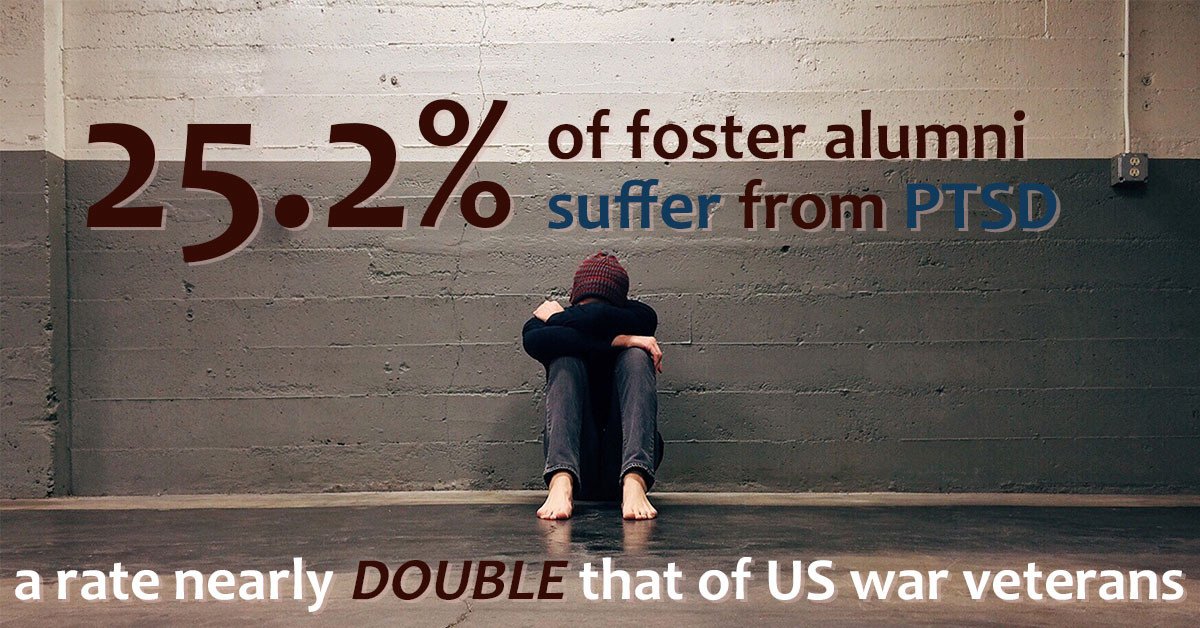
Does that mean that employers might need to consider an investment in compassion? That’s what this group is trying to figure out. What does a program like this look like and would San Antonio employers be amenable to trauma training? “It’s 2 to 3 hours of trauma-based training. I think many business owners and their management will find the training helpful with dealing with many different employee backgrounds, not just the ones who came from foster care,” says Smith.
Leading this lunch slash dialogue and inviting us all as his guests was restaurateur, Richard Peacock, who owns San Antonio’s Chris Madrid’s (amazing burgers and fries, folks) and Paloma Blanca. This all began when Peacock and his wife, Brooke, attended an informational session given by South Texas Alliance for Children. Smith says they were, “heartbroken by the limited path and outcomes for youth that were aging out. They wondered if they could use their restaurants and their business connections in the community to create a new path for these youth.”
Being a business owner myself and a foster-advocate, I was especially thankful for Mr. Peacock’s grasp of the compassion for this employable demographic and his commitment to finding a solution, but also his attention with care to fellow business owners’ possible reaction to the ideas.
If you are a business owner and you want to learn more about this effort or would like to hire a former foster youth:
If you would like to support this initiative and other THRU Project programs, you can text THRU to 91999 to donate.
About the Author
Anne Gerber is a THRU Project mentor (and friend) to several youth who have aged out of foster care. She also sits on the board of the THRU Project.


